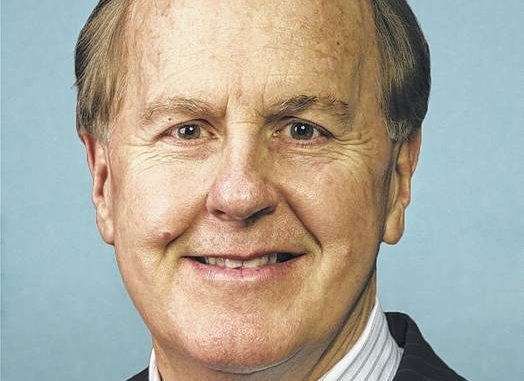
Jesus told the people of Nazareth that “He has sent me to proclaim that capt.ives will be released, that the blind will see, that the oppressed will be set free, and that the time of the Lord’s favor has come” (Luke 4:18-19, NLT).
This Easter weekend, as we celebrate the Resurrection, I am reflecting on those in our community who still need to be set free.
People like Maria, who was trapped in human trafficking when she answered an ad for an “aspiring actress.” Rosa was snatched from a gas station while waiting on a ride. Antonia dreamed of owning a bakery before falling victim to human trafficking.
These are all women here in North Carolina whom I have met while working on legislation to combat human trafficking. They are all ordinary women. Someone’s daughter. Someone’s granddaughter.
As a father of three daughters, I am horrified at how young these women were when first lured into human trafficking. As a pro-family member of Congress, I am inspired by how these brave women survived, overcame their diabolical captors, and now thrive.
Sadly, experts consider North Carolina a “top 10” state for human trafficking, a key location for a $150 billion worldwide “industry” that has ensnared hundreds of thousands in the United States.
As with pornography, the Internet has enabled human traffickers in their evil deeds. For example, in a congressional investigation we found that Backpage.com actively works with sex traffickers to alter their advertisements to remove any words that indicate criminal activity. We also know Backpage.com is involved in 73 percent of all child trafficking reports that the National Center for Missing and Exploited Children receives from the general public.
Such behavior is evil and un-American. But incredibly, it is not currently against the law.
That’s why I joined with Congresswoman Ann Wagner, a Missouri Republican, to co-sponsor and help pass the “Allow States and Victims to Fight Online Sex Trafficking Act of 2017,” which now awaits President Trump’s signature to become law.
Our bipartisan legislation closes loopholes exploited by websites like Backpage.com, enables states and victims to file criminal and civil actions against websites that violate federal sex trafficking laws, and provides new tools to law enforcement personnel.
Combatting human trafficking is a key pro-family issue and a priority of mine in Congress. Over the past few years I’ve also co-sponsored and helped pass:
— H.R. 3610, which encourages “safe harbor” laws so victimized minors caught in the sex trade have an avenue to access protective services, counseling, and training.
— H.R. 4058, which requires states to identify, prevent, and address the trafficking of youth in foster care.
— H.R. 4225, which cracks down on websites which advertise the sexual exploitation of children.
— H.R. 4573, which notifies other countries when an American sex offender who has previously abused a child is traveling abroad, cracking down on a despicable practice known as “child sex tourism.”
We have taken significant action, but I am keenly aware there is still more work to be done. Therefore, I will continue to work with President Trump and my colleagues in Congress to draft and pass legislation aimed at ending this horrific practice.
Yet, while Congress has an important responsibility to update and create laws, provide appropriate funding, and clarify policy, ultimately, human trafficking is a matter of the heart. There are warped individuals who feel the need to exploit other human beings. There are people in our community with unhealthy attitudes toward sex, and young people who feel lost or abandoned or unwanted and find themselves victimized.
That’s why we must work together to end human trafficking. We must work in our communities on behalf of victims, by speaking up, by noticing those in the shadows, and by helping raise the next generation to respect others.
Together, we can put an end to this heinous form of modern day slavery.

